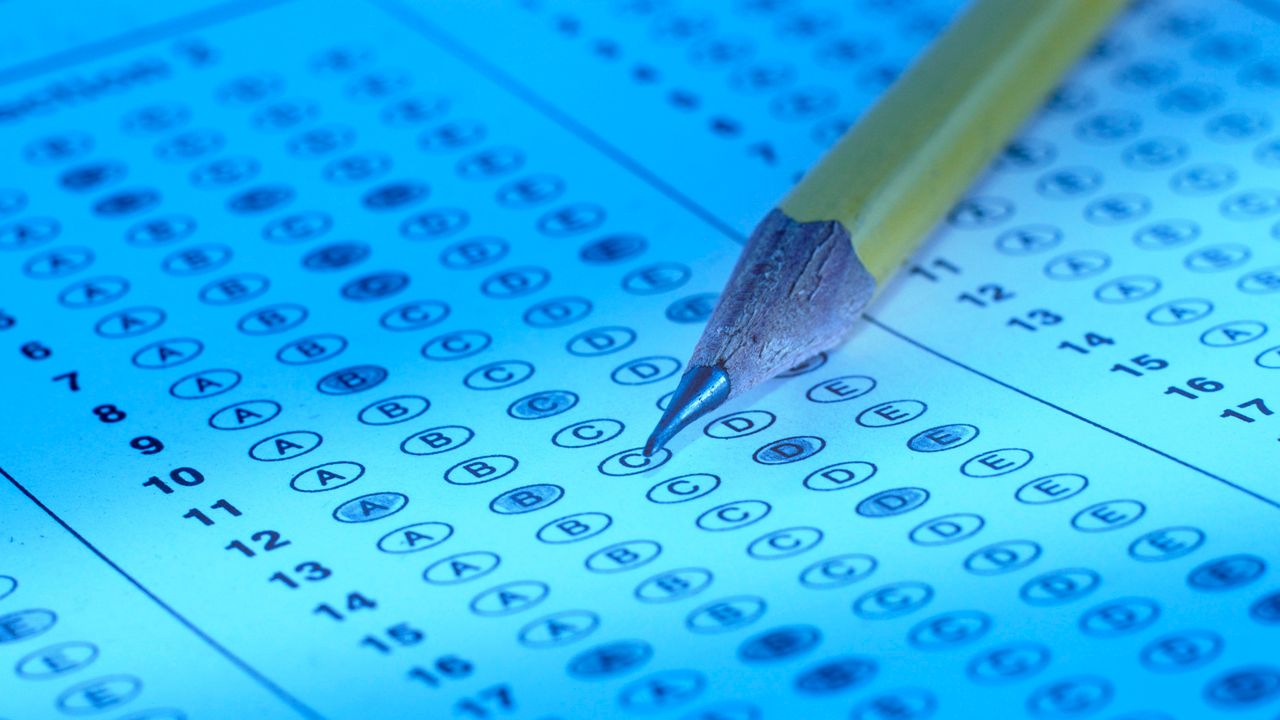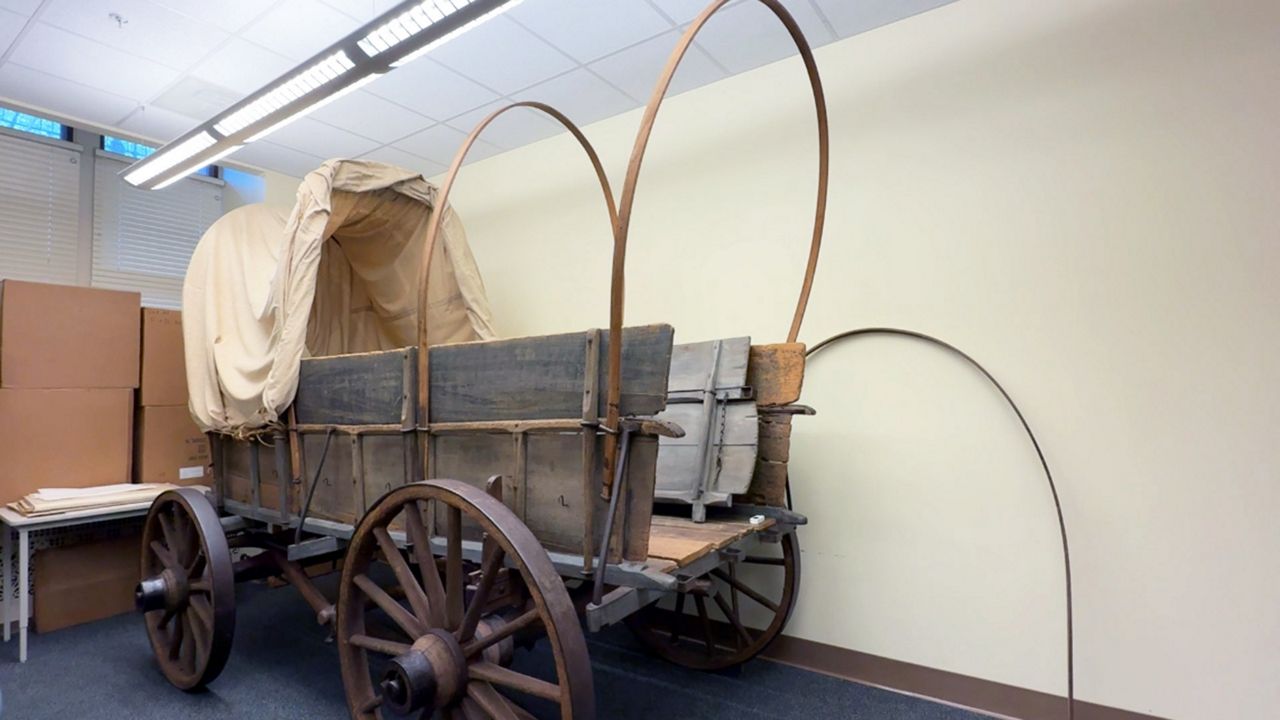ST. LOUIS — Several school districts across Missouri are seeking an exemption from giving the MAP test in exchange for a new accountability measurement system to better gauge students’ learning progress throughout the school year.
Twenty school districts, including Parkway, Affton, Lindbergh, Mehlville, and Pattonville, are part of a Success-Ready Students Network (SRSN) Demonstration Project. SRSN, which has been in collaboration with Missouri Department of Elementary and Secondary Education (DESE), is a group of educators and stakeholders geared toward ensuring students are prepared for high school, college and the workforce.
Members of the group presented their proposal to the Missouri State Board of Education last week.
“I think it’s important that we’re not looking to stop having testing, but we want that testing to be meaningful for kids, we want it to be more frequent, (and) give parents better information,” said Kevin Beckner, assistant superintendent of teaching and learning for Parkway School District.
A state statute allows a school or a group of schools to apply for a School Innovation Waiver that can last up to three years. The state board plans to vote on the request during its August meeting. The U.S. Department of Education must also grant approval since the MAP test is a federal mandate.
If approved, the work of the Success-Ready Network Demonstration Project would start this fall and continue through the 2025-26 school year, according to a press release.
The other school districts participating in the demonstration project are Branson, Center, Confluence Academy, Fayette, Lebanon, Lee’s Summit, Lewis County, Liberty, Lonedell, Neosho, Ozark, Raymore-Peculiar, Ritenour, Ste. Genevieve and Shell Knob.
As stated in the press release, some of the key components of a new measurement system would include:
Measuring student growth multiple times throughout the school year
Immediate, timely feedback for the student, teacher and parents
Student awareness of where they are and engagement in setting future goals
Active student learning using different pathways and varied pacing
Student progress based on evidence of mastery, not seat time
Student engagement in real-world learning experiences that support high school, college, career and workplace readiness
The MAP assessments are taken annually, usually in the spring, and “test students’ progress toward mastery of the Missouri Show-Me Standards,” according to the DESE website.
In addition to the MAP, other standardized tests that align with Missouri standards currently are administered to students multiple times per year by school districts, however, some prefer these interim assessments in lieu of the MAP test because they better evaluate students’ progress, according to Jenny Ulrich, superintendent of Lonedell R-XIV School District.
Interim assessment results are only provided back to school districts and not sent to the state or federal departments.
“We’re not asking for a shift from the learning standards or the priority standards, it’s all of Missouri’s work, it’s all of Missouri’s standards. We’re just asking to assess them in a different way,” Ulrich said.
She was one of the presenters along with Lisa Sireno, assistant commissioner with the Office of Quality Schools; Jeremy Tucker, superintendent of Liberty Public Schools; and Mike Fulton, Success-Ready Students Network facilitator.
Since students take the MAP test in the spring, school districts do not receive those results until the following fall semester when students have already moved on to the grade, according to Ulrich.
“That opportunity to change instruction or to change that outcome for that student has passed. They are now in another grade level,” she said.
Other standardized tests used by school districts are administered three times per school year, “so, you can see students growing across and within the school year, not just a test result that happened three months ago,” Ulrich said.
“It’s kind of hard to run two assessment plans over the top of each other and it’s frustrating to teachers as well because we’re already doing the interim assessments and most of these districts are, but then the state assessment, the MAP, kind of trumps all of that. It just takes a lot of extra time to administer the MAP when you’re already administrating the interim assessments too.”
Getting MAP test results back in an untimely manner is an issue school districts across Missouri are facing, according to Beckner.
“That means that we can’t use (MAP test results) to help the kids in that specific grade, so what that also means is every district is either purchasing or creating assessments that do get that information throughout the year,” he said.
“What we’re asking is ultimately can we use the information that we’re already getting throughout the year as the accountability measure so that we’re doing two things through one system, which would be more efficient for all of our schools, more effective for all of our teachers and our leaders, and all around be a much better process for all of our kids and their learning.”
The Demonstration Project is backed by research, and SRSN has partnered with Marzano Resources for continued research.
While Missouri school districts use a variety of assessment companies, the state board asked if there could be one unified assessment used. Ulrich said those discussions are taking place, along with other talks of other improvements.
“That’s kind of what the demonstration project is about, like what are the things we still need to figure out and fine-tune in order to still meet the federal accountability measures and standards, and also make sure our patrons and our parents feel good that we’re reporting accurate, good, understandable data back to them,” she said.
Additionally, instead of annual performance reports like the MAP test provides, part of the proposal is to have public, forward-facing dashboards of students’ progress that would be available starting in November if granted, according to Ulrich.
She noted that the dashboards “would actually show in real time where students are at.”
“That’s kind of exciting too because the information to stakeholders will be more timely,” she said.
If the School Innovation Waiver is not approved, school districts will still administer the MAP test, in addition to other assessments given by school districts.
For more information about SRSN, click here.









